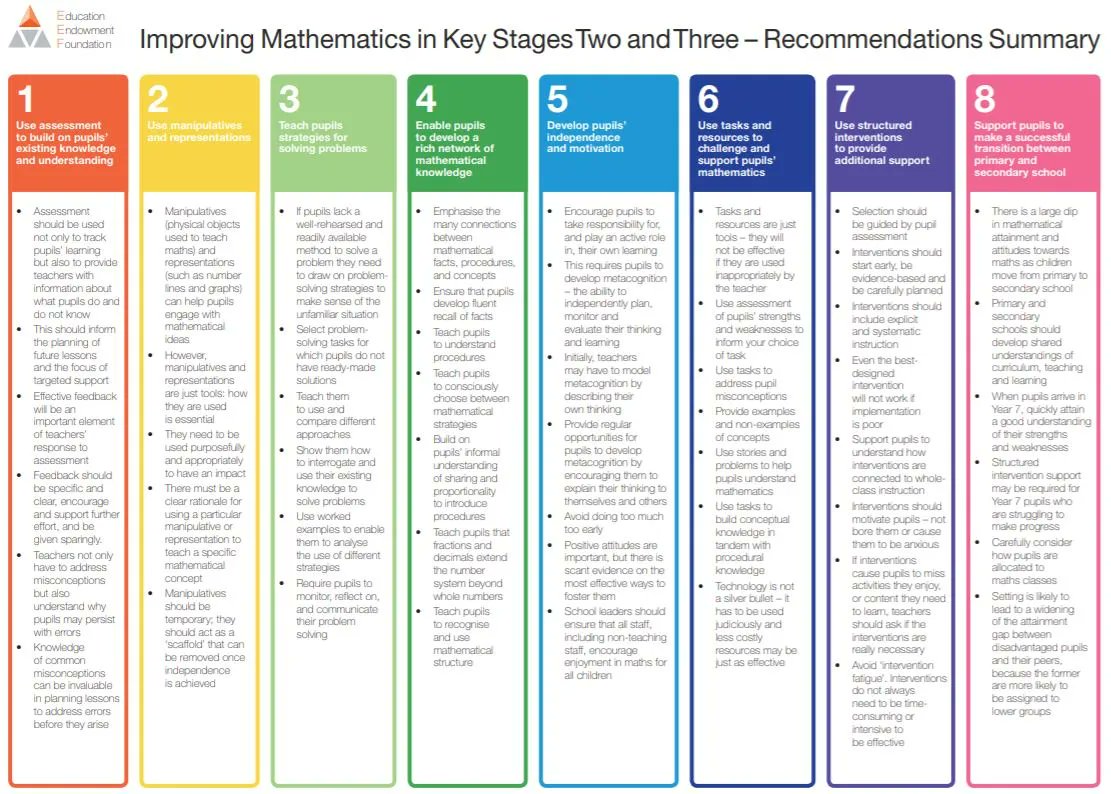2024-25 Years 5-8 Continuity (Wolverhampton)
Wednesday 27 November, Wednesday 12 February, Wednesday 11 June Science Park - University of Wolverhampton
Dates
Wednesday 27th November 2024 - 0900-1500 - Wolverhampton University - Science Park
Wednesday 12th February 2025 - 0900-1500 - Wolverhampton University - Science Park
Wednesday 11th June 2025 - 0900-1500 - Wolverhampton University - Science Park
When booking, please note the dates and times in your diary, and submit your cover request in school.
Evidence of a dip in progression as pupils move from KS2 to KS3 is widely reported and accepted. Teacher knowledge of curriculum and pedagogy and a focus on academic transition, as well as pastoral, have been identified in the research by Ofsted and EEF as key factors in improving outcomes for pupils.
The Work Groups promote teaching for mastery approaches across the KS2-3 boundary to ensure consistency in the pupil experience, thereby meeting the Primary schools and Secondary schools strategic goals of establishing teaching for mastery approaches and encouraging schools in engaging with teaching for mastery support. The Work Groups also meet the Primary strategic goal of ensuring that pupils ‘are well prepared for the secondary maths curriculum’.
Participants' feedback from previous years was completely positive, including:
- 'Collaborating and discussing mathematics with colleagues from different phases, including in breakout rooms, has been great.'
- 'It has really made me think about my practice and how I can use vocabulary and the resources available with the NCETM.'
- 'I have become more aware of the importance of langauge and asking the right questions to extend pupils.'
- 'It has made me thing more deeply about the smaller steps of Teaching for Mastery.'
- 'The support offered by the Work Group leaders and other teachers has been superb.'

Who will be leading the group?
Graham Charles
Graham is an accredited NCETM PD lead and is the strategic leader for Salop, Herefordshire and Wolverhampton (SHaW) Maths Hub. Graham has been working collaboratively with KS2 and KS3 project leaders nationally to develop this transition project over the past eight years, with more than 3000 teachers taking part nationally.
Jo Makin-Isherwood
Jo has been Primary Teaching for Mastery Lead for CODE Maths Hub, progressing as an accredited NCETM PD Lead and Primary Specialist. Jo worked with Early Years, KS1 and KS2 classes, including mixed age classes, before becoming Maths Subject lead and Senior Leader, including extensive SEND experience. Jo has co-led Years 5-8 Continuity Work Groups over the past two years, as well as leading Oracy and Specialists Knowledge Work Groups.
Who is it for?
The intended participants are those who teach and/or have responsibility for the maths curriculum in Years 5 to 8. Participants may be subject leaders, phase leaders or teachers with responsibility for transition in a school. Work Groups are particularly effective when secondary schools and their feeder primary schools work together.
Participants are expected to attend the equivalent of three full days of workshops, and to complete school-based tasks between sessions. Work Group Leads aim to hold sessions in both KS2 and KS3 settings, affording opportunities to see the tasks in different classroom contexts.
A range of materials have been developed which exemplify the principles of teaching for mastery, and focus on key elements common to both KS2 and KS3 maths teaching and learning. Some of these materials may be explored in Work Group sessions, and teachers will then try them out with students, observing the impact of different pedagogical approaches in their own class, reflecting on these activities, and preparing brief notes to support discussions in the following workshop. Participants may also be asked to contribute to online forum discussions. Schools need to be willing to explore and trial a potentially different pedagogy in maths, and to develop their transition practice. It is expected that activity associated with this project is sustained over at least one school year.
What are the intended outcomes?
Pupil outcomes
Pupils:
- are better prepared for the curriculum transition from KS2 to KS3
- in KS3 show improved understanding of the chosen topics, based on strong connections with KS2 foundations
- in KS2 and KS3 demonstrate a positive attitude to maths.
Whole school/departmental policies and approaches
Participants will work with their school/subject leaders to ensure that:
- collaboration between primary and secondary colleagues on issues of curriculum and pedagogy is a normal part of the school’s transition practice (and policy)
- curriculum planning at KS3 is better informed by KS2 content
- curriculum planning at KS2 identifies the priority learning which underpins progression, preparing students for the KS3 curriculum.
Practice development
All participants will:
- ensure that lesson design and pedagogy demonstrate a secure knowledge of curriculum continuity
- develop understanding of how learning in KS2 develops in KS3
- develop understanding of how teaching for mastery develops in KS2 and KS3
- develop practice to address areas where there are possible barriers to progress in KS3
- make use of coherent approaches, representations and language.
Professional learning
Work Group Leads, participants, and the teachers in their schools will:
- have a deeper knowledge and understanding of the curriculum across KS2 and KS3, including the expectations of students at the end of each key stage in relation to specific areas of the curriculum
- have a deeper understanding of the approaches which will support students as they move from KS2 to KS3, including the importance of consistency of language and representations specifically relating to specific areas of the curriculum.
What is the cost?
Funded by DfE so participation is free for schools
Work group full
